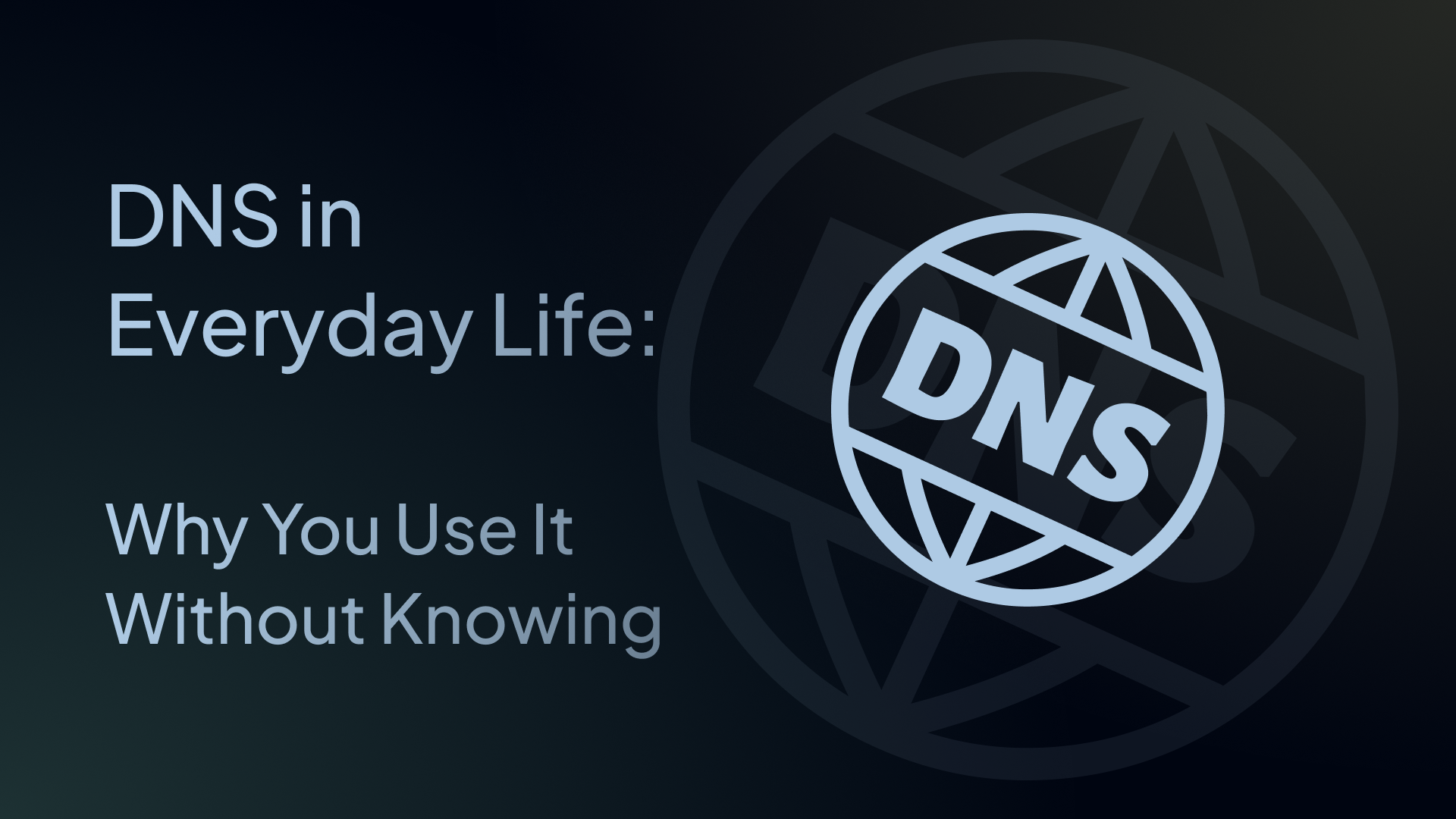DNS Examples: How You Use DNS in Everyday Life
Looking for examples of DNS? Let's take a look at how you use DNS in everyday life, including browsing social media, streaming music, and more.

Most people don’t think about the technology that powers their daily online lives. You open an app, type a website address, or join a video call, and everything just works.
Behind the scenes, though, the Domain Name System (DNS) is quietly making these connections possible. It’s one of the internet’s most essential services, and it’s one that you might rely on hundreds of times a day without realizing it.
What DNS Actually Does
At its core, DNS translates easy-to-remember domain names (like example.com) into numerical IP addresses (like 192.168.1.1) that computers use to communicate and connect with each other. Without it, you’d need to memorize a string of numbers every time you wanted to visit a website.
Instead, you simply type “gmail.com,” and DNS handles the translation instantly. This invisible process is what makes the internet usable for everyday people, because it happens so quickly and reliably, you rarely stop to notice it.
Everyday Examples of DNS in Action
DNS isn’t just about loading websites in your browser. It’s involved in nearly every digital interaction.
DNS works its magic each time you:
- Open a social media app on your phone.
- Stream music or video through a service like Spotify or Netflix.
- Shop online or book a flight.
- Log in to a cloud-based work tool, such as Zoom, Slack, or Google Drive.
DNS is at work, quietly connecting names to numbers so your requests reach the right destination. From checking the weather in the morning to joining an afternoon video call, DNS is constantly working behind the scenes. Without it, your online world would come to a grinding halt.
When DNS Goes Wrong
Because DNS is so foundational, problems with it can cause major headaches. A misconfigured or overloaded DNS server can slow down page loads, make apps unreachable, or cause services to drop altogether.
Worse, if DNS is tampered with by attackers, it can redirect you to malicious sites without your knowledge.
Think about the last time a favorite app wouldn’t load or a website seemed “down.” Often, the culprit is a DNS issue. While it may feel like an inconvenience in the moment, these disruptions highlight how deeply our routines depend on this often-overlooked system.
Why DNS Awareness Matters
For something so important, DNS doesn’t get much attention. Most individuals and businesses simply use whatever DNS service their Internet Service Provider (ISP) sets by default, but that convenience comes with risks.
ISPs may log and sell your browsing data, their services often lack security and filtering, and they can be vulnerable to attacks.
For businesses, the stakes are even higher. DNS problems can open the door to phishing attacks, data theft, and downtime, all of which translate into lost productivity and customer trust.
Understanding the role DNS plays in everyday life is the first step toward protecting your data, your browsing, and your business. Once you see how integral it is, you’ll recognize why a more intentional approach makes sense.
How Control D Makes DNS Integration Easy
This is where customizable DNS services like Control D come in. Instead of settling for your ISP to handle everything, you can choose a service that prioritizes privacy, security, and flexibility.
Control D lets you:
- Block phishing sites, malware, and unwanted content before they ever load.
- Protect privacy by not logging or selling your browsing data.
- Customize filters for households, organizations, or public Wi-Fi networks.
- Gain detailed analytics to make data-driven decisions that protect your network and devices
By taking control of DNS, you transform it from a hidden background service into a powerful tool for safety and productivity, and solutions like Control D make it easier to stay secure without complicating your setup.
DNS is the Hidden Backbone Behind Everything
Every email sent, show streamed, or file uploaded starts with a DNS request. You may never see it, but it’s happening constantly in the background, shaping your online experience.
By making smarter choices, like using a secure and customizable provider like Control D, you can turn this invisible backbone into an asset that protects your privacy, shields you from threats, and keeps your digital life running smoothly. DNS may be hidden, but it deserves a place at the forefront of how you think about security and reliability online.

